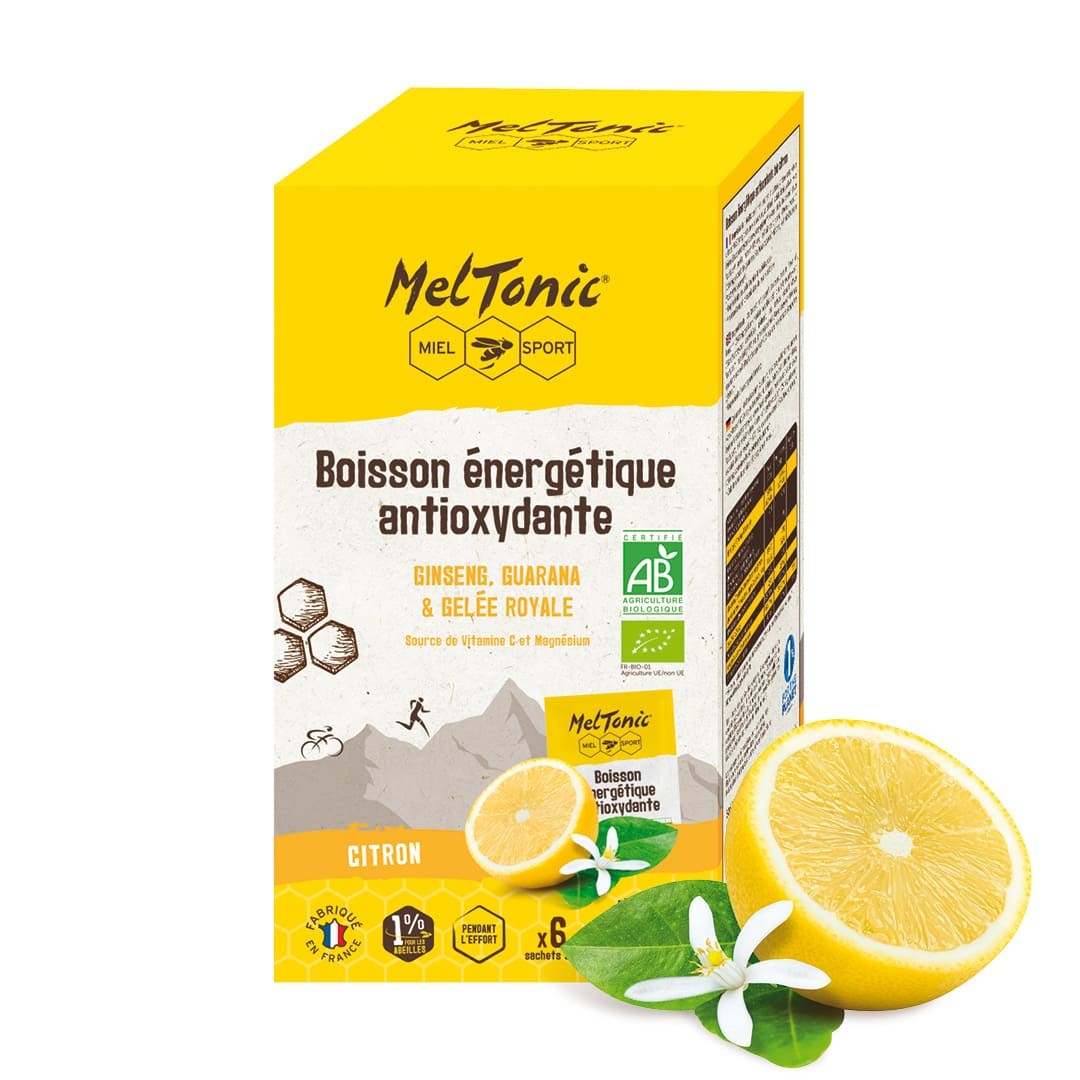The difference between isotonic and energy drinks
Category: Advice


The human body is composed of 60-70% water and needs an average of 30ml of water/kg of body weight which varies according to the metabolism of each person (yes, you are unique).
During a physical effort, the body uses energy which is provided by the athlete's food and oxygen. This results in the production of heat due to the contraction of the muscles. This effort leads to a more or less significant loss of water: the athlete sweats and loses calories and minerals necessary to continue his activity. This is where isotonic drinks come into play.

Isotonic drinks or more commonly called energy drinks correspond to a liquid drink whose objective is to replenish the body with minerals and vitamins during physical effort.
For a drink to be defined as isotonic, these elements must be present in its manufacture:
Dehydration has dramatic consequences on performance. It is the cause of injuries, cramps but also cardiac arrest. For an intense physical effort (more than 1h30), sweating can be very important if it is practiced under high outside temperatures.
It is therefore essential to anticipate and plan for water loss during sports activities. An athlete loses about 1 liter of water per hour of training. His glycogen reserves are on average available to provide energy for up to 1h-1h30 of physical effort at a significant intensity. Isotonic beverages rich in electrolytes are therefore necessary if you want to exert yourself for a long time and at a certain intensity. Isotonic drinks, in addition to compensating for the loss of water, replenish your minerals (sodium, calcium, magnesium).
Isotonic drinks are ideal for cycling, running, trail running or marathon running.
You have probably heard of electrolyte-rich drinks. Isotonic or energy drinks are rich in them. According to the French scientific media, Futura Sciences, an electrolyte allows the passage of energy by the movement of ions. It is a liquid substance generally known to the public by the names sodium, magnesium, potassium or calcium.
The electrolyte that you lose the most during sports and during the sweating process is sodium.
A drink rich in electrolytes will prevent you from becoming too dehydrated and will provide you with all the necessary benefits to prolong physical effort and replenish the body.

Isotonic drinks (energy drinks) should not be confused with energy drinks. The latter are not suitable for physical effort. Energy drinks are mainly composed of high doses of sugars, caffeine and taurine, and these will tend to accentuate dehydration.
Usually sold in cans, energy drinks are non-alcoholic but still high in calories. It is generally targeted at young people to fight against the feeling of fatigue and to increase intellectual capacities. Energy drinks consumed too often accentuate the danger of accelerating the cardiac system and nervous tension because they are rich in carbohydrates. They can lead to addictions, muscle injuries and mental disorders if consumed in large doses for the wrong reasons.
Stimulants such as caffeine and taurine should be consumed in moderation to avoid their harmful effects.
Caffeine, is an alkaloid present in coffee that has a short-term stimulating effect on the central nervous system and accelerates the cardiovascular system.
Harmful effects of coffee:
If too much coffee is consumed, there can be many harms such as insomnia, anxiety or gastric problems. However, the effects of coffee on hydration are null if the consumption of caffeine is lower than 30ml per day. Indeed, it does not cause any dehydration during physical effort.
Taurine:
Taurine is an amino acid present in the human body. It is a substance present in the liver and bile that participates in the assimilation of fats. It is important in the elimination of toxins and other undesirable effects during a physical effort. It has side effects, if consumed in too high doses. The consequences can be serious and impact the heartbeat or the digestive system. It has led to many deaths when consumed in too large quantities, especially with alcohol.
Your daily water consumption can be sufficient if the sports session is less than 1 hour. Isotonic beverages are especially recommended for an intense effort of more than one hour.
Depending on the sport and the outside temperature, isotonic drinks are consumed differently. In hot weather and during exercise, dilute one packet of Meltonic lemon or mint antioxidant energy drink in 500 millilitres of water.
It is best to drink this cool drink in sub-dosage and drink it every 10 minutes. If outside temperatures are cold, it is best to overdose the drink and consume it in sips every 10 minutes.
Isotonic drinks are ideal to consume with energy bars to facilitate the digestion of food while hydrating.

For hydration, a true source of electrolytes
